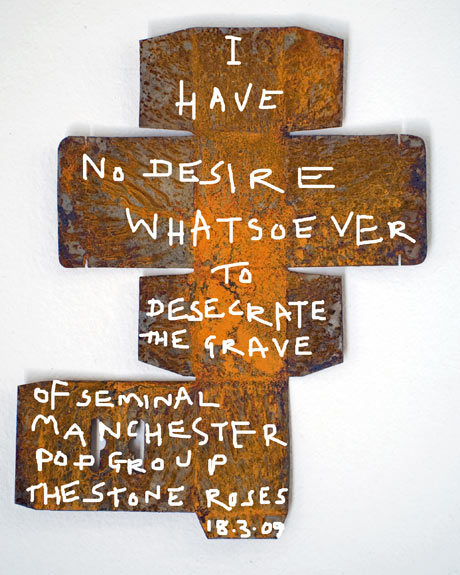The news of the Stone Roses reunion has garnered an understandable amount of press coverage and conjecture this last week. The ‘Roses’ were, after all, a band that ushered in one of indie music’s most notable eras, paving the way for the unbridled success of Oasis, Blur et al and, along with the Happy Mondays, burgeoning an already emphatic scene latterly to become subjugated by the moniker ‘Madchester.’
Their eponymous debut album, released in 1989, is rightly heralded as one of the all-time greats from these shores; its mixture of kaleidoscopic melody, pop sensibility and psychedelic imagery bubbling over in a froth of youthful exuberance and working-class defiance.
And yet, these very characteristics - which weave together to form the fabric of what made the Stone Roses great – make this reunion far less palatable than those of their contemporaries Pulp, Blur and Suede.
Whereas Pulp champion introspection and social awareness – themes less likely to seem out of step with the onset of age (Jarvis Cocker’s Reading 2011 appropriation of ‘Joyriders’ as topical allegory to the recent nationwide looting being the perfect example) - the Stone Roses, with their anarchic dreams of regicide, blasphemous posturing and unabashed self-adoration, are totemic of a romanticism far more inherent to youthful abandon.
Is it artistically and romantically desirable to hear someone in their forties exclaiming the line “the past was yours but the future’s mine”?
Irrespective of any ageism on my part, the Stone Roses, surely, were emblematic of the beautiful possibilities of working class idealism.
They fantasised in their bedrooms [while cars burned below them] and created a short lived expression of vitality that perfectly encapsulated the life-affirming escapism of 'rock 'n' roll'.
Oasis should have split in 1997, immediately after the 'here and now' that was their record breaking Knepworth shows; before that vitality was weathered away by the affluence and security that a prolonged recording career brings, debilitatating them in the process.
When you can't boast of lyrical insight or musical innovation, inevitably, there's only so long your appeal can last. Your star will burn brightly but fade quickly and that's the way it ought to be.
To see the Stone Roses reunite now, a full 23 years after that historic debut release, feels less like a resurrection and more like an exhumation.
 |
| The Pollock inspired cover of their debut LP |
And yet, these very characteristics - which weave together to form the fabric of what made the Stone Roses great – make this reunion far less palatable than those of their contemporaries Pulp, Blur and Suede.
Whereas Pulp champion introspection and social awareness – themes less likely to seem out of step with the onset of age (Jarvis Cocker’s Reading 2011 appropriation of ‘Joyriders’ as topical allegory to the recent nationwide looting being the perfect example) - the Stone Roses, with their anarchic dreams of regicide, blasphemous posturing and unabashed self-adoration, are totemic of a romanticism far more inherent to youthful abandon.
Is it artistically and romantically desirable to hear someone in their forties exclaiming the line “the past was yours but the future’s mine”?
 |
| John Squire's 2009 position on potential reunion |
They fantasised in their bedrooms [while cars burned below them] and created a short lived expression of vitality that perfectly encapsulated the life-affirming escapism of 'rock 'n' roll'.
Oasis should have split in 1997, immediately after the 'here and now' that was their record breaking Knepworth shows; before that vitality was weathered away by the affluence and security that a prolonged recording career brings, debilitatating them in the process.
When you can't boast of lyrical insight or musical innovation, inevitably, there's only so long your appeal can last. Your star will burn brightly but fade quickly and that's the way it ought to be.
To see the Stone Roses reunite now, a full 23 years after that historic debut release, feels less like a resurrection and more like an exhumation.
No comments:
Post a Comment